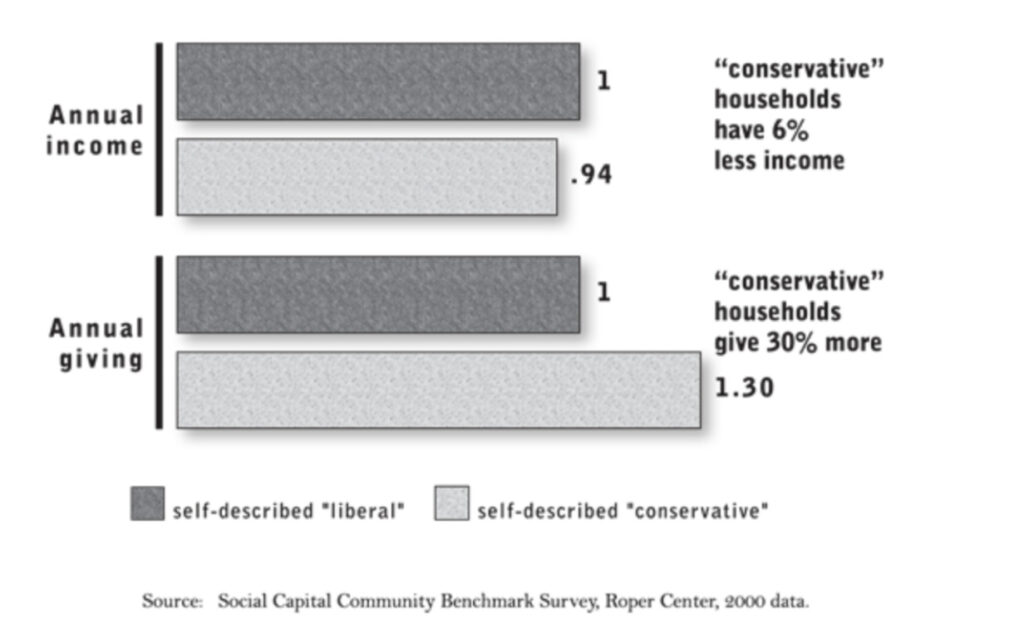Christian affiliation and education linked to greater generosity
Charitable giving is a hallmark of the holiday season, personified by projects like Giving Tuesday, Operation Christmas Child and all the Salvation Army Santas ringing bells across the…

Charitable giving is a hallmark of the holiday season, personified by projects like Giving Tuesday, Operation Christmas Child and all the Salvation Army Santas ringing bells across the nation.
But when all is said and done, it’s the most religious who give the most generously.
A map created by a data analytics group ranked counties by how charitable they were – and the results are suggestive.

The most charitable region was the South and Southeast, with people in Mississippi, Alabama, and South Carolina giving more than 5% of their income to charity. Utah was also a highly generous region. The results were confirmed by another study, too.
But more affluent states like California give much less. In the Northeast, most counties give less than 3% of their income.
Even the southeastern metro areas are the most charitable in the U.S.
The generous areas have something in common: religiosity.
The Pew Research Center found that southern states have the highest concentration of “highly religious” citizens, while northeastern states have many of the least religious.
Some studies suggest religious affiliation is a greater predictor of generosity than other factors, such as political affiliation.
But data from the Philanthropy Roundtable suggests a link between political party and giving, finding Republicans are more generous than Democrats – possibly because religious people tend to align with conservative values.
And though conservative families have slightly lower income on average than liberals, conservatives are substantially more generous.

And while religious causes are some of the most popular, religious individuals actually donate more money to secular causes than non-religious people.

But generosity isn’t only about whether a person was raised religious or lives in a religious community.
A report from the University of Notre Dame also found that Christian education produced more charitable alumni than public education.
Alumni of religious schools, particularly classical Christian schools, were more involved in their churches and communities, more likely to volunteer their time, and generally had a more positive outlook on life.



